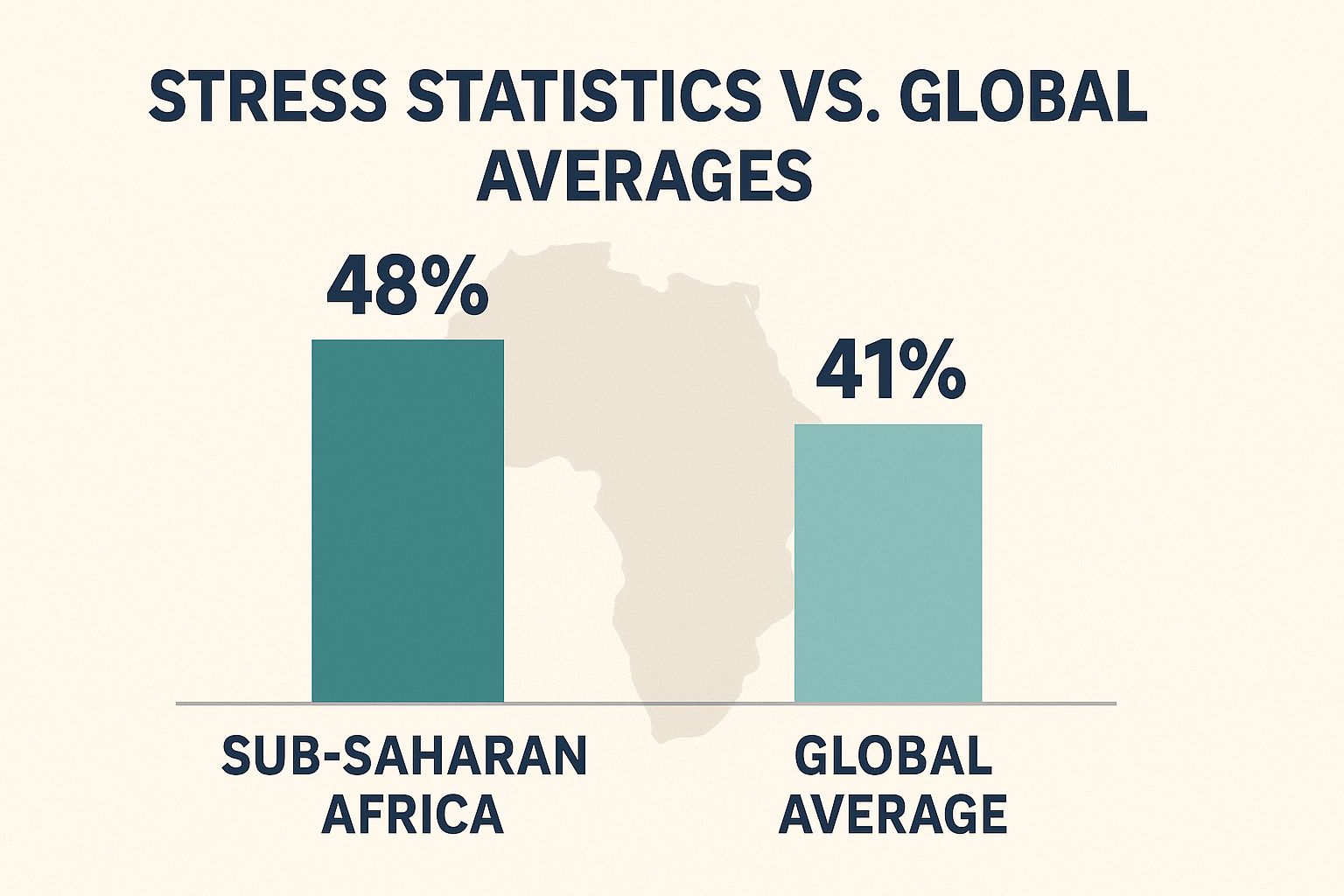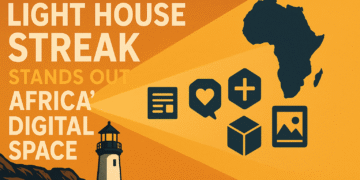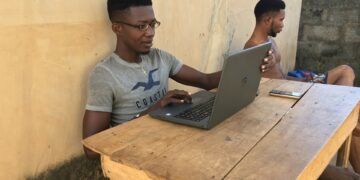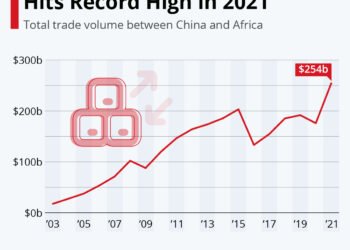Introduction
Stress isn’t just a personal challenge—it’s fast becoming a public health crisis across Africa. With rising poverty, youth unemployment, conflict, and work-related pressures, many Africans are disengaged, overwhelmed, and unable to cope. Gallup data shows a startling 48 % of sub-Saharan workers felt significant stress yesterday—well above the global average (41 %) hr-africa.beehiiv.com+2african.business+2mediapadafrica.com+2. In South Africa alone, over 70 % have experienced stress so intense it impacted their daily functioning thesouthafrican.com+1ipsos.com+1. This post dives deep into what’s driving this crisis—and how we can respond.
Why Stress Levels Are Skyrocketing

Several interlinked pressures are fueling stress across Africa:
- Economic insecurity & job pressure: With 75% of African workers actively seeking new roles, insecurity reigns african.business+1hr-africa.beehiiv.com+1.
- Poverty & inequality: Often cited as root causes of mental anguish afro.who.int+5businessdailyafrica.com+5lifeinhumanity.com+5.
- Cultural stigma & misunderstanding: Many confuse mental strain with spiritual weakness, delaying help-seeking afro.who.int.
- Persistent trauma: From natural disasters to conflict zones, many suffer unaddressed psychological wounds state.october.health+2lemonde.fr+2apnews.com+2.
The True Cost of Ignoring Stress
Unchecked stress isn’t “just life”—it affects livelihoods and lives:
- Economic impact: Billions lost annually as unwell workers underperform or are absent (Gallup; Africa CDC) verywellmind.com+15african.business+15thesouthafrican.com+15.
- Health burden: Rising depression, anxiety, and even suicides (Africa’s suicide rate hits ~28.7 per 100 k, surpassing global averages) state.october.health.
- Workplace drain: Stress-related illness accounts for over 40 % of occupational health issues in South Africa en.wikipedia.org.
- Low well-being: Only 17 % of Africans feel thriving—far below global norms african.business.
Positive Hope: Community-Based Healing
Despite the scale, effective solutions are emerging:
- Grassroots support: In Zimbabwe, public yoga demonstrates low-cost community-centered care .
- Workplace wellness: Ghanaian firms and WHO partner to tackle job stress proactively .
- Tailored psychosocial care: Togolese hairdressers now counsel clients, boosting mental health access state.october.health+3lemonde.fr+3apnews.com+3.
- Policy efforts: Africa CDC and platforms like October Health highlight the urgent need for resources, training, and workplace well-being initiatives en.wikipedia.org+14state.october.health+14theguardian.com+14.
How You Can Protect Your Mental Health
Here are practical ways to engage and heal:
- Build routines: Daily movement, rest, & spiritual rhythms.
- Stay connected: Talk, confide, and find safe spaces to be heard.
- Set work-life boundaries: Take time to recharge—your life depends on it.
- Seek professional support: Even peer groups and community counsellors help.
- Speak up: Share your story and help reduce stigma.
Conclusion / Final Thoughts
Stress affects half the workforce, fuels tragedy, and undermines our collective potential—but it’s also reversible. By speaking up, taking action on stress, and building community-centered solutions, Africa can turn this challenge into a catalyst for mental wellness. It’s time for mental health to move from shadow to spotlight.
How are you responding to stress today? Let’s discuss in the comments below.













































